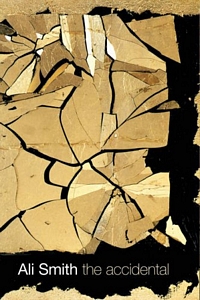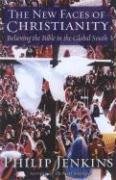Top 10 books of 2006 - no. 8 & 7
 8. The Accidental - Ali Smith
8. The Accidental - Ali SmithAli is one the two Smiths who are the rising stars of British literary fiction (the other being Zadie, no relation). Formerly a lecturer in English, this Scotswoman had a period of self-examination after having been struck down by a mystery bug that kept her in bed for months on end. During that time, she decided that she was never going to be a decent academic, and started to write full-time. Having teased and excited many in the establishment with glimpses of her talent in various short stories, she finally wrote her first novel to critical acclaim - this book was shortlisted for the Booker in 2005, won the Whitbread Award, and made many "best books of the year" lists.
I had only heard of her in passing, but was intrigued enough to give her a try. I couldn't help feeling apprehensive though, since this was being marketed as "literary fiction" and I had found much modern(read:20th century) literature either impenetrable or pretentious. Thankfully, Ali Smith is not one of them. The Accidental is set in modern Britain, as we follow the Smarts on a family holiday. The Smart family looks like your typical middle-class family, but as the novel progresses we see that there are plenty of landmines beneath the tranquil surface. The story is told from the point of view of each family member (dad,mum,teen,precocious child). This happens to be one of the book's strengths, as Smith captures each voice distinctively, using free indirect style, which is no mean feat.
The title comes from the "accidental" entry of a mysterious lady, Amber, who wanders into each of their lives and in doing so shatters the facade of perfection that the family have cultivated for so long. Amber remains elusive throughout the novel - who, or what is she? The closest word is possibly "ghost", but even then that doesn't really fit - she feels more like the manifestation of a presence that just won't go away. In a review of the book later, I discovered that Amber is also a nod to an old Terence Stamp movie in which a mysterious wanderer also suddenly intervenes into the life of an ordinary family, disturbs their routine and generally unsettles them.
This book deals with the hidden dysfunction that occurs in many families, where problems and issues are commonly repressed or denied, or so that one can continue the illusion of the perfect family. Smith does so with amazing inventiveness, using as 3-act structure to frame the book - the novel is split into 3 sections - the beginning, the middle, the end, and experimenting within such a framework. In one chapter, she audaciously has Michael, the father (who also happens to be an English professor), completely think in sonnet-form. I thought she was pushing it there, but I couldn't deny her boldness in even attempting this.
The Accidental is wonderfully readable, experimental in style, and thought-provoking in its themes all at the same time. Persevere with this and you won't be disappointed.
If this interested you, you might also find interesting...: Really, it's hard to think of anyone quite like Ali Smith. You might want to try her earlier short story collection, Hotel World. Zadie Smith is similarly acclaimed, and I've seen many commuters on the Tube with a copy of her On Beauty on hand.
 7. The New Faces of Christianity: Reading the Bible in the Global South - Philip Jenkins
7. The New Faces of Christianity: Reading the Bible in the Global South - Philip JenkinsI went to see a friend of mine, a Brit, recently. We used to co-lead Bible studies for international students together, and he was telling me about his current group, which comprised primarily of mainland Chinese students, many of whom were new Christians. They had been studying a passage from Mark, and while discussing how the passage applied to their lives, they ended up debating about the compatibility of being a Christian and a member of the Communist party. "I just sat back and watched in wonder, honestly," my friend told me. "They knew what they had just encountered in the word of God had implications for their lives, and it was great seeing them wrestle with it. Not that I could contribute much!"
This anecdote captures a little of the flavour of the latest from Philip Jenkins. Jenkins, a distinguished historian, is best known for The Next Christendom, in which he shows how Christianity is no longer the exclusive domain of the Northern hemisphere, and that, in fact, the center of gravity has moved Southward. To my Malaysian or non-Western readers, this is something we've all known for quite some time, but for many, especially those who consider themselves both Western and secular, this is something pretty surprising.
In this sequel, he now turns to the question of what Christianity is like in the global South, and more specifically how the Bible is read and affects the day-to-day lives of Southern Christians. His main thesis is that Asian and African Christians (he opts not to discuss Latin America) often live in a milieu which is more akin to the world of the Bible, sociologically and culturally. So, for example, the world of demons and spirits are never far away for the African Christian, nor is the world of natural disaster and a sense of exile from their lands for many other indigenous Christians. Using the Anglican crisis over homosexuality as a starting point to draw a contrast between the North and the South, he shows how the global South tends to take their Bibles more literally and tend to be more conservative in their application.
Each chapter, then, goes on to explore key interpretive issues which divide the North and South, such as the relevance of the Old Testament, an identification with the poor and oppressed (with extremely astute comments about the roots of the prosperity of the gospel), the place of women and patriarchy and so on. Majority World scholars are frequently cited. This is a mainly descriptive book, with Jenkins trying to be as fair-minded as possible and in doing so, rarely makes evaluative statements.
It's also a pretty nuanced book, I'm afraid my summary above is rather crude! And this book raises so many interesting questions, none of which have any easy answers. For example, the Old Testament provides many resonances for African Christians, but are we to take some of its prescriptions at face value, in light of the fact that Jesus has come? Are accusations of syncreticism in some Christian practices in the South justified, or a result of ethnocentricism? What is the relation between divine punishment and communal sin, church and state? How does the Japanese Christian react to passages about eternal punishment, when so little of his people know Christ? (I believe this question also hits closer to home.)
I wonder too, about "globalized" people like me, and how my experiences have shaped my reading of the Bible. For example, how would 1 Peter, when mentioning that we're strangers in the world, and addressed to people scattered throughout Asia Minor, speak to the diaspora? And so on and so forth.
This is a valuable book to read and to expand our worldview, even as we consider what it means to follow Christ as a Malaysian Chinese, a British Indian, an African-American, a Caucasian, whatever. John Stott, in a recent interview, was asked how he would describe the growing church. He said, "growth without depth". May it not be so 50 years from now.
If this interested you, you might also find interesting...:Jenkins has a brief interview with Christianity Today here. Here is a quick summary of his famous piece in the Atlantic Monthly that provided the basis for The Next Christendom. Also, it is worth watching these 2 excerpts of Tim Keller reflecting on The Scripture as Foundation and whether the Bible is culturally conditioned. I found his comments illuminating. If you have broadband, it should take no more than a minute to load each clip, which is roughly 2 minutes plus each.
† Expand post
Labels: book reviews












Post a Comment
<< Home